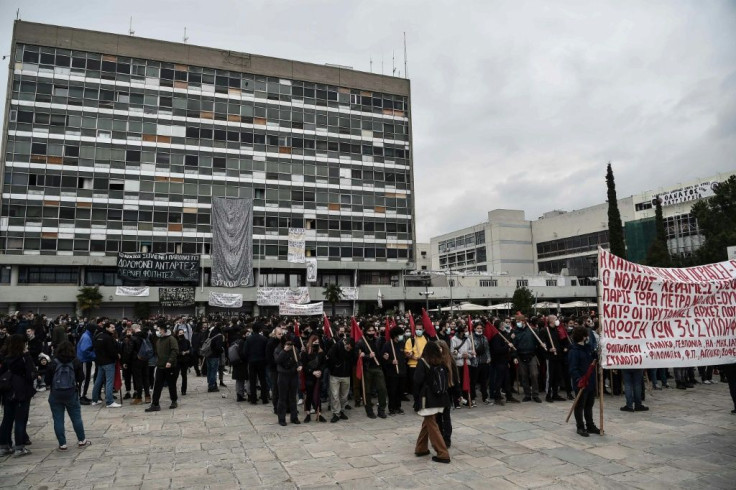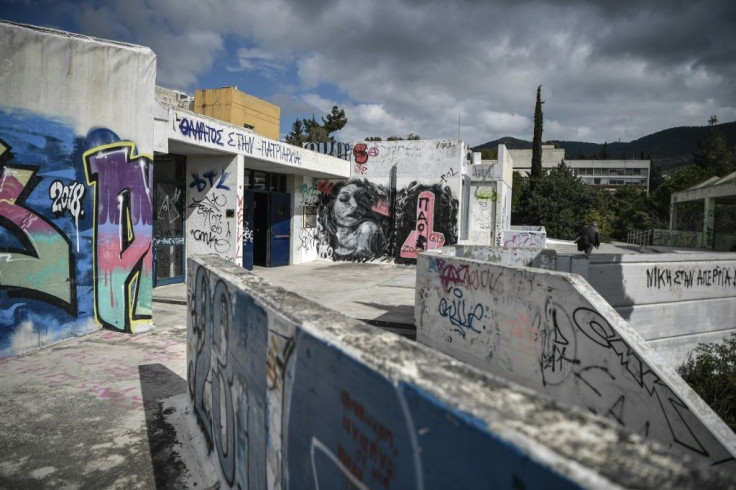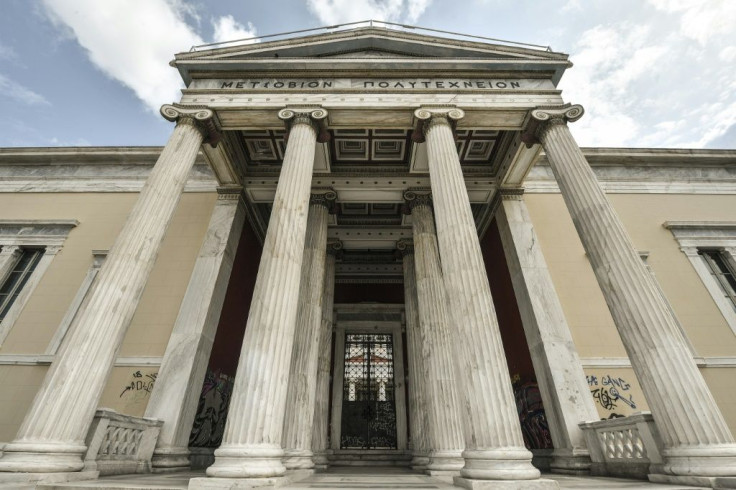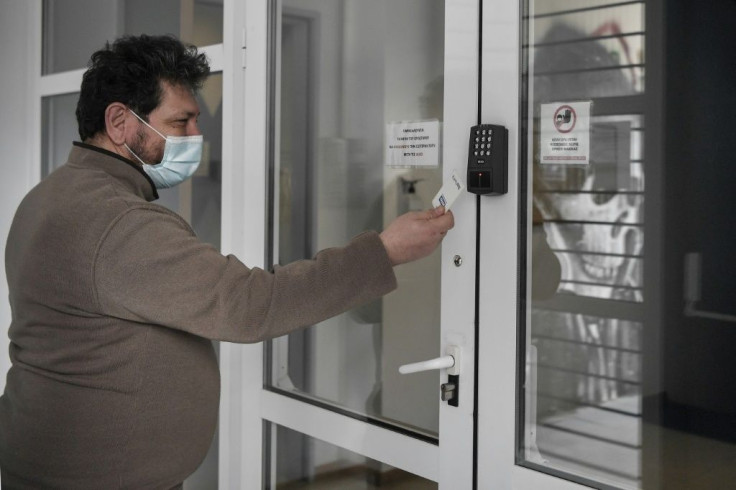Trouble-hit Greek Universities Wary Of Campus Police Plan
A new special police force for fighting violence at Greek universities has sparked uproar and a fierce debate in a country where police entering campuses is a highly sensitive issue.
Condemned as undemocratic by some critics, student groups have flouted virus restrictions to hold regular protests against the policing plan for weeks.
With memories of student beatings and killings by security forces during Greece's military dictatorship still raw, university staff are worried that stationing police on campuses is not the answer and may even inflame the problems.
For decades, strikes, protests, clashes, violence against staff, sit-ins against cutbacks and reforms as well as crime have disrupted university life.

In the most recent case, riot police were sent in to break up the occupation of administrative offices at Aristotelio University in the second city, Thessaloniki.
Prime Minister Kyriakos Mitsotakis says the new police patrols are necessary to usher in a "cool breath of freedom, until now kept out by the smoke of firebombs".
Addressing MPs last month when the plan was approved, he said that "historical buildings (are) vandalised, infrastructure pillaged, people threatened, girls raped and drugs sold" on university grounds.
Professors, he said, were "intimidated" and "taken hostage" by student hardliners.

But, at Athens Polytechnic, deputy rector Evangelos Sapountzakis said there were "doubts" whether the police force was up to the task.
Sapountzakis, a Polytechnic graduate himself, also told AFP he was concerned that students would see police on campus as a "provocation" and fight back.
Under the current conservative government, there have been recurring reports of heavy-handed police tactics against protesters.
Until now, abuse complaints were rarely investigated.

Under the plan, around 1,000 specially-trained police will be deployed at Greece's main universities from September, a police source told AFP.
They will not carry firearms.
In the meantime, policing at some major universities will be stepped up from next month, the public order minister has announced.

Speaking on condition of anonymity, a Polytechnic professor said the university's sprawling campus in the Athens district of Zografou had a host of problems, ranging from vandalism and graffiti, to drug dealing.
"The worst problem we have are break-ins and thefts of equipment it could take a year to replace," he said.
"The lab next door has been burgled half a dozen times.
"Most people here believe these things need to be kept in check, but we disagree on how to do it."
The local police station is usually "too afraid" to intervene, the professor added.

Historically, universities have sought to keep the police at arm's length after its role in brutally crushing a 1973 student uprising at the Athens Polytechnic.
Sapountzakis, its deputy rector, insists that the university could better manage its own security if its state funding had not been drastically slashed during the decade-long economic crisis.
"In 2009, our budget was 9.36 million euros. This year, it's 3.8 million euros ($4.5 million).
"The electricity bill alone costs approximately two million euros," Sapountzakis told AFP, in his office overlooking the badly run-down campus.
An online petition against the measure has garnered hundreds of signatures from academics around the world.
In December, the conclave of Greek university rectors said it "recognised the need" for a "realistic" security initiative and called for more details from the government.
Some have criticised them for failing to take a stronger stand against the violence blighting campuses.
"It's costly, not to mention occasionally dangerous, to raise a voice, let alone to act, against this state of affairs," said Stathis Kalyvas, who has spent most of his career teaching abroad and is currently an Oxford University professor of government.
However, it is often anti-establishment protesters, not part of the university, who are behind the violence.
In October, the rector of the Athens University of Economics and Business (AUEB) was assaulted in his office by a group of hooded youths, who put a sign around his neck that read "Solidarity to sit-ins".
The AUEB did not respond to requests for comment.
But a faculty member told AFP: "Our university has major problems with crime, petty or not, mainly carried out by non-students."
Staff and students "are afraid to speak out on the record because they could be targeted," the staffer said.
Rectors and professors at other universities have also been blockaded in their offices by students opposing reform plans.
Some have had cars and offices damaged.
Outside an Athens Polytechnic laboratory, a large graffito of a pig wearing a policeman's cap has been sprayed on the wall.
But structural engineering professor Xenofon Lignos, who has spent both his student and teaching career at the university, says the outward image of dysfunction belies the solid research being done by his students, much of which is commissioned by European industries.
"I am proud of these kids," he says.
© Copyright AFP {{Year}}. All rights reserved.





















